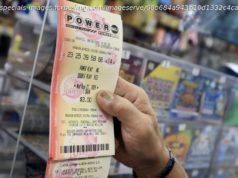In closing arguments, the special counsel’s office described Paul Manafort, the former Trump campaign chairman, as well versed in financial matters and motivated to commit fraud.
ALEXANDRIA, Va. — The evidence against Paul Manafort is “overwhelming,” a prosecutor told jurors during closing arguments in his fraud trial on Wednesday, saying that he hid more than $16 million in income and fraudulently obtained $20 million in bank loans even though, as a trained lawyer, “Mr. Manafort knew the law.”
The lead prosecutor, Greg D. Andres, described Mr. Manafort, President Trump’s former campaign chairman, as a bright and highly capable political consultant who was well versed in tax law and financial matters and fluent in terms like “write-offs” and “distribution” income. Mr. Manafort deliberately deceived his bookkeeper and tax accountants, Mr. Andres argued, so he could keep more of his income tax-free and then trick banks into loaning him millions when “he was going broke and he couldn’t pay his bills.”
In a dispassionate summation that lasted nearly two hours, Mr. Andres insisted that Mr. Manafort’s crimes could not be dismissed as mere oversights. He repeatedly showed the jury emails, tax returns or other financial documents that Mr. Manafort either personally wrote or signed.
“It wasn’t a clerical decision. It wasn’t ‘forgot to check a box,’” Mr. Andres said. “When you follow the trail of Mr. Manafort’s finances, it is littered with lies.”
With the stroke of a pen, Mr. Andres argued, Mr. Manafort achieved financial magic, making mortgages and other debts disappear, turning a rental apartment into a second residence, changing a loan into income and back again, and disguising a near-bankrupt political consultancy into one whose income was “on the upswing.”
Mr. Manafort’s lawyers, who have spent much of the trial trying to undercut the government’s case, were to deliver their closing arguments later on Wednesday afternoon, followed by a short rebuttal by the prosecutors. The case is the first trial brought by the office of the special counsel, Robert S. Mueller III, who is investigating Russia’s election interference and whether any of Mr. Trump’s associates conspired with that effort as well as any other possible crimes he uncovers, including the allegations against Mr. Manafort.
If he is found guilty, Mr. Manafort, 69, could spend the rest of his life behind bars. The most serious offenses carry a maximum penalty of 30 years in prison. His wife, Kathleen, was in the courtroom listening to the Wednesday’s closing arguments, as she has throughout the 12-day trial, but his two daughters were absent.
Mr. Andres went to some pains to shore up the testimony of Rick Gates, Mr. Manafort’s former right-hand man, saying that more than 10 other witnesses, plus dozens upon dozens of documents, backed up Mr. Gates’s account of how Mr. Manafort tricked banks and illegally concealed income. “Ladies and gentlemen, the star witness in this case is the documents,” Mr. Andres said.
He said in picking Mr. Gates as his assistant, he chose someone like himself to help him violate the law, and guided him in how to do so. “He didn’t choose a Boy Scout,” Mr. Andres said.
“We are not asking you to take Rick Gates’s testimony at face value,” he said. “We’re not asking you to like him either.” But he asked: Even if Mr. Gates had an extramarital affair 10 years ago, as he admitted on the stand, “does that make Mr. Manafort less guilty?”
Mr. Andres tried to simplify financial machinations that spanned seven years, saying “Mr. Manafort’s scheme, when you break it down, was not that complicated, but it was hidden.”
He repeatedly asked the jurors to rely on their common sense when analyzing the hundreds of exhibits presented by the government. “Ladies and gentlemen, a loan is not income. Income is not a loan. You don’t need to be a tax expert to understand that,” he said.
He also asked why Mr. Manafort would pay an accounting firm $100,000 a year to pay his bills, but pay more than $15 million of them himself out of foreign bank accounts. “The answer? He wanted to hide those accounts,” he said. “Use your common sense.”
Running through exhibits that he said documented Mr. Manafort’s falsehoods beyond doubt, Mr. Andres highlighted some lies as “nothing short of absurd.” For instance, he said, Mr. Manafort “reminded” his son and daughter-in-law that bank officials believed they were living in a SoHo apartment that was in fact a rental. “If you are living in a residence, do you need to be reminded?” he said.
The documents Mr. Andres highlighted for the jurors included: doctored profit and loan statements for his political consulting firm that showed $3 million to $4 million in annual income for years when the firm made little money or suffered losses and a delinquent American Express bill of more than $200,000 that Mr. Manafort blamed on Mr. Gates when it threatened his ability to get bank loans.
Even after Mr. Manafort lost his unpaid job as Trump campaign chairman in August 2016, he promoted his connection with the campaign, dangling the prospect of a cabinet post before the chairman of a Chicago bank from which he was seeking $16 million in loans, emails showed.
From 2010 to 2014, when he was swimming in cash from his Ukraine work, Mr. Andres told the jury, Mr. Manafort created more than 30 foreign bank accounts in the names of shell companies. Ukrainian oligarchs who had hired him to help a pro-Russian politician win the presidency funneled more than $60 million to those accounts. Mr. Manafort declared none of that income, prosecutors said, evading taxes on at least $16.5 million of it; the rest might fall into the category of business expenses.
Mr. Manafort’s lawyers presented no witnesses during the trial and focused much of their defense on attacking Mr. Gates.
Under cross-examination, Mr. Gates, 46, admitted that despite the fact that he had committed crimes for which he could have been sentenced to up to 100 years, he hoped that his cooperation with prosecutors would help him stay out of prison. He has yet to be sentenced for the two felonies to which he pleaded guilty in February — lying to federal prosecutors and conspiracy to commit bank fraud.






